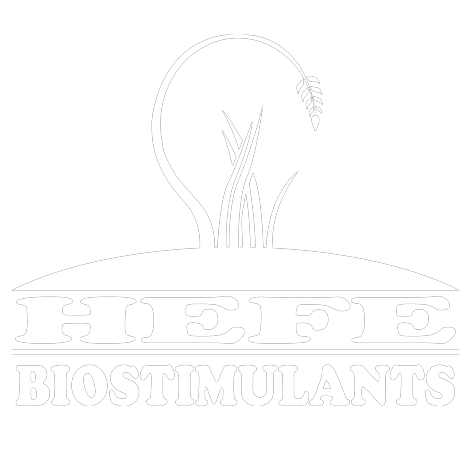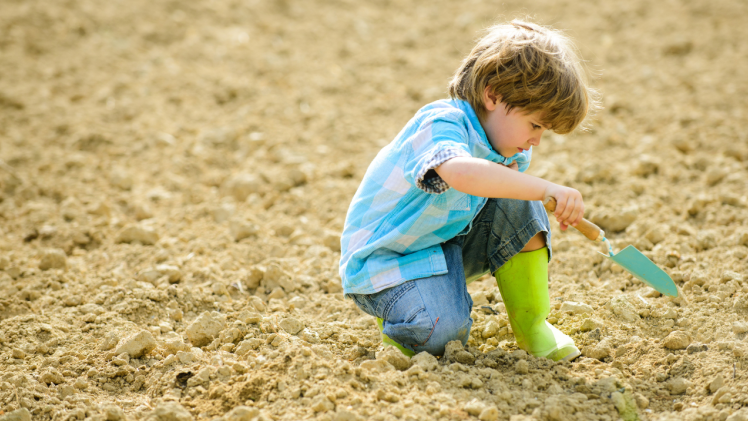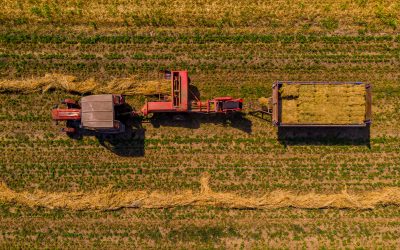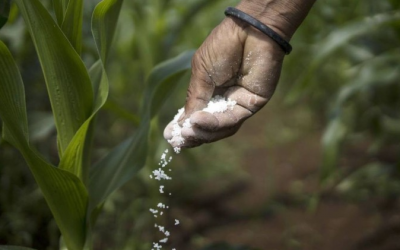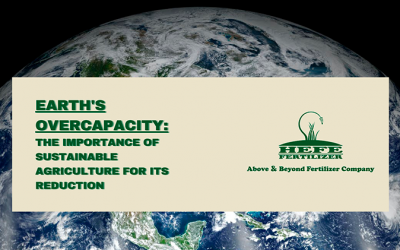The soils of our planet as a whole are one of the most complex and diverse ecosystems we have, as they provide humanity with the largest percentage of the volume of food available and provide us with a wide variety of essential services, serving us as a carbon store and being one of the main natural regulators against the greenhouse effect.
However, soil is an asset for humanity that is as important as it is finite. The rapid growth of the human population in recent decades, increasing to 6.1 billion in 2000 and projected to reach 9.8 billion in 2050 —and with it, its growth in resource consumption— puts unprecedented pressure on the soil through intensification of agricultural production.
Such intensification is having a serious and irreversible impact on our fertile soils, causing tremendous losses of organic matter and leading to a considerable increase in the emission of greenhouse gases; it is also contributing to the habit of over-applying fertilizers to crops to accelerate production cycles, which is affecting the future quality of useful land (erosion, contamination, acidification, salinization and loss of genetic diversity). Thus, this systematic degradation is a long-term impediment to soils continuing to provide basic services —as in their essential task of supplying food— and to continue to function as an environmental protector.
Soils themselves, due to their condition as the main provider of basic needs, suffer today their greatest overexploitation. We must remember that it is not only exploited as a means of producing food, but also as a producer of essential goods such as energy, fiber and physical materials for infrastructure (wood, metals, minerals). The increase in these types of consumption is linked both to the accelerated growth of the human population and to the new consumerist lifestyle we lead in our society today.
To get an idea, if we take into account the exponential increase in consumption and population growth, the ideal to meet future demand would be that food production would increase by 70% between 2005 and 2050 to achieve global food security. But what will happen to our soils if we increase the overexploitation we are talking about to achieve these results?
We can understand the importance of such a limited and finite asset as soils, so how should we protect these ecosystems in the face of the problem generated by the voracity of their resources?
Improved farming systems and practices as ecosystem protection
From the agricultural sector, the best bet we can make to protect endangered soils is to advocate cultivation practices more consistent with the degree of environmental impact and degradation of the environment after uses, giving priority over the rush to obtain a quick production. Betting on quality and long-term terms, over careless immediacy in the short term.
But what particular practices could we promote for this change in a better working approach:
- Balance the amount of nitrogen supplied to the crop with the amount demanded by the plant. This can be controlled by applying slow nitrogen liberalization products or by controlling fertilization cycles during the growth phase. With this practice we will be able to reduce acidification, substantially reduce the emission of nitrous oxide from the soil and reduce other types of adverse impacts.
- Correct and restore marginal soils included in the set of arable land, considered the least productive due to their advanced degradation.
- Use conservation agriculture technics, such as reduced tillage, to reduce organic matter losses, increase infiltration and water storage capacity, and reduce erosion. This measure contributes to the sequestration of calcium in the soil and reduces erosion by improving soil structure and fertility.
- Avoid agricultural practices that leave considerable residues in soils and work to recover contaminated areas.
- Improve irrigation quality and scheduling to reduce the negative impact of saline soils.
Faced with the obvious problem of soil ecosystem degradation, these measures help to counteract the rapid deterioration to which we seem to be heading. Not only because they have significant positive effects on the conservation and recovery of agricultural land, but also because beyond that, the more these practices and tillage habits are normalized, the greater the awareness of the problem that we in the agricultural sector will acquire. To become aware and make this problem visible is the first step so that various spheres —economic, social and political— take the problem into account and address it as a whole.
HEFE Fertilizer and the problem’s awareness
From our company, we are aware of this great global problem that not only affects the rural world. As we have been able to analyze, the protection of soil ecosystems is an issue that affects us all as a society.
Therefore, since its inception, HEFE Fertilizer works from the field of research and development to formulate biotechnological products 100% ecological which promote these new ways of sustainable agriculture, enabling the land correction and promoting the organic conservation matter with modern inputs. Inputs for washing out unwanted salts, slow liberalization, pH regulators that increase the health and fertility of the soil or natural stimulants that promote the plant’s own development without harming the surrounding soil.
#health #environmental #soils #organicfertilizers #fertilizercrysis
